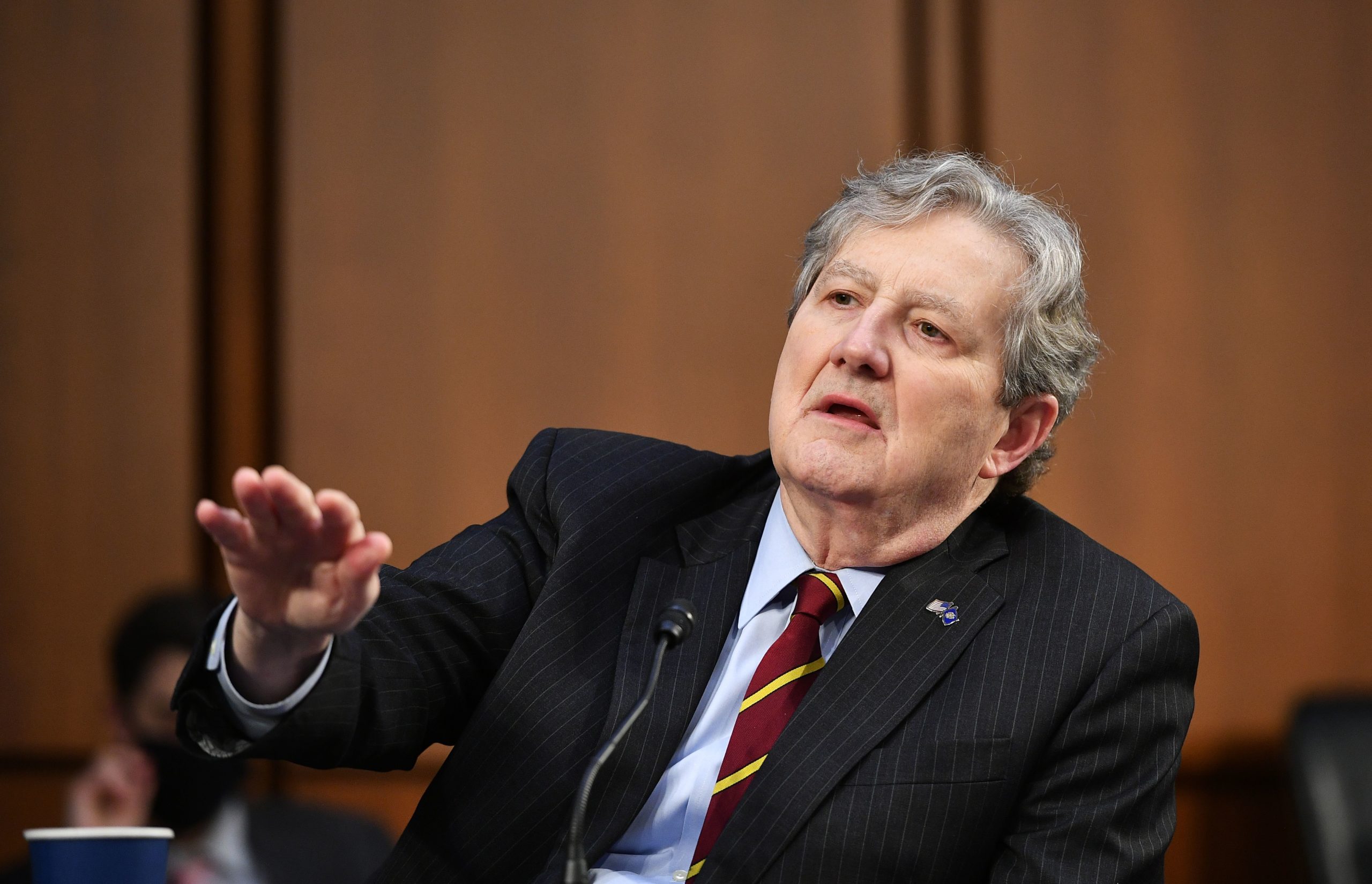Biden Nominee Freezes Up When Sen. John Kennedy Stumps Her With Question
Republican Louisiana Sen. John Kennedy stumped judicial nominee Robin M. Meriweather on Wednesday with a question about how the Court of Federal Claims works.
President Joe Biden nominated Meriweather to be a judge on the Court of Federal Claims in early January.
Kennedy first began his line of questioning by asking how many motions Meriweather has argued in the court of federal claims. Meriweather said she’s argued “hundreds of motions involving complex civil claims in numerous courts, the court of federal claims is not one of those courts.”
“Okay, so the answer is zero?” Kennedy asked.
“That is correct, senator.”
“Okay how many cases have you tried in the Court of Federal Claims?”
“I have tried a civil case in the District Court for the District of Columbia, most of my cases have been resolved on motions, none of those cases have been in the court of federal claims, although they involve similarly complex matters under civil laws,” Meriweather explained.
“So the answer is zero?”
“That is correct, senator.”
“Tell me the grounds for granting a new trial in the Court of Federal Claims,” Kennedy then said.
“All of the trials in the Court of Federal Claims are bench trials and the Court of Federal Claims, although it is not bound by the federal rules of civil procedure, its rules mirror those rules when applicable,” Meriweather said. “So it’s my understanding that the same rules that would apply in the district court are also applied in that context, but if I were presented with a motion for a new trial should I be confirmed as a judge on the Court of Federal Claims I would of course consult the rules of court, of the Court of Federal Claims.”
“So what are the grounds for granting a new trial?” Kennedy again asked.
“My understanding is that a new trial, you would have to comply with the applicable rules,” Meriweather said.
“I know that, but what are they? What are the grounds, you said that the rules are identical to the Court of Federal Claims and Federal District Court, I’m not sure that’s accurate, but just tell me, what are the grounds for granting a new trial in the Court of Federal Claims?” Kennedy pressed.
“Senator, that is not an issue I have had occasion to consider before, despite my extensive civil experience and my familiarity not only with the federal rules of civil procedure but I’ve also reviewed the rules of the Court of Federal Claims. But if I were presented … with that question should I be confirmed, I would again consult the rules and follow the precedent.”

Senator John Kennedy, R-LA, speaks as FBI Director Christopher Wray testifies before the Senate Judiciary Committee on the January 6th insurrection, in the Hart Senate Office Building on Capitol Hill in Washington, DC on March 2, 2021. (Photo by MANDEL NGAN/POOL/AFP via Getty Images)
“Alright, let me be sure judge I understand your testimony: Can you tell me one single ground for granting a new trial in either a federal district court of the Court of Federal Claims as we sit here today?” Kennedy asked again.
“Yes, if you misapplied – if there were gross misapplication of the law, certainly a litigant would argue for a new trial–”
“Anything else?” Kennedy interjected. “There are like six or seven of them. Can you tell me any others?”
“Trials are so infrequent in the civil context and I have, although I have presided over bench trials and a jury trial, I have not been presented with a motion to have a new trial so I’ve not–”
“Okay, okay, what’s a contract of adhesion?” Kennedy followed up.
“Senator, I’m familiar with contract law, the concept of contracts of adhesion–”
“Yeah, you’re gonna see a lot of that, that’s what federal court of – Federal Claims does. What’s a contract of adhesion?”
“Senator, the court of federal claims does handle a lot of procurement cases, those typically turn on interpretations–”
“Yes ma’am, but I’m going to run out of time. What’s a contract of adhesion. If you don’t know, just tell me.”
“Senator, despite my extensive civil experience including dozens of cases that include contract cases, I have not dealt with the question of what a contract of adhesion is but should it be presented to me I would–”
“Sure, you’ll look it up,” Kennedy interjected.
An adhesion contract is a “contract where the parties are of such disproportionate bargaining power that the party of weaker bargaining power could not have negotiated for variations in the terms of the contract. These contracts are prepared by the party with greater bargaining power for use in all similar business transactions and given to customers on a take-it-or-leave-it basis,” according to Cornell University.
Kennedy, a member of the Senate Judiciary Committee, previously stumped another Biden nominee, Sara E. Hill, when he asked her to describe the difference between a “stay order” and an “injunction.”
WATCH: Kennedy grills witness over climate change
WATCH: Kennedy presses judiciary nominee about past work
WATCH: Kennedy questions a witness about electric vehicle policies
 Reviewed by Your Destination
on
January 25, 2024
Rating:
Reviewed by Your Destination
on
January 25, 2024
Rating:
No comments